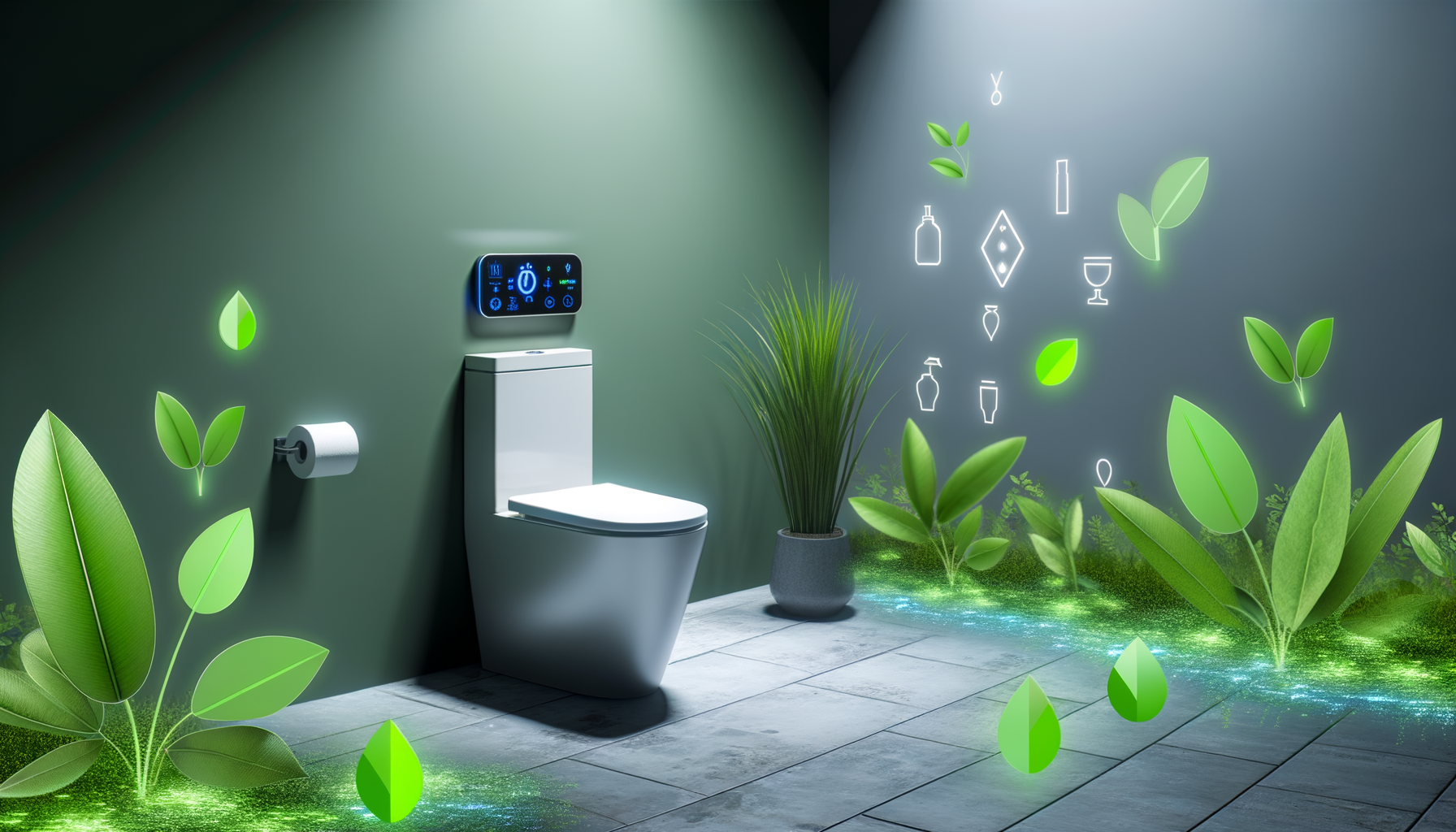The Future of Health Monitoring: How Smart Toilets Are Revolutionizing Digestive Health
In the era of advanced health tracking, the humble toilet is undergoing a significant transformation. Smart toilets, equipped with cutting-edge technology, are emerging as a crucial tool for monitoring digestive health and providing insights into nutrient absorption. Here’s a deep dive into how these innovative toilets are changing the game.
The Science Behind Smart Toilets
Smart toilets are not just about luxury and convenience; they are designed to collect and analyze vital health data from urine and stool samples. Researchers at Stanford University, for example, have developed a precision health-focused smart toilet that uses automated urine and stool analysis to detect various health issues, including cancers, infections, and kidney failure.
These toilets are outfitted with advanced technologies such as motion sensing, physical and molecular analysis, and even AI-powered image recognition. The Stanford smart toilet, for instance, can measure 10 different biomarkers in urine and stool, providing a comprehensive health profile.
Tracking Digestive Health
One of the primary benefits of smart toilets is their ability to track digestive health with unprecedented accuracy. For individuals suffering from chronic gastrointestinal issues like irritable bowel syndrome (IBS) and inflammatory bowel disease (IBD), these toilets can be a game-changer.
The Duke University Smart Toilet, which uses artificial intelligence to analyze stool images, is a prime example. This technology can classify stool form and detect the presence of blood with high accuracy, allowing gastroenterologists to make more accurate and timely diagnoses.
Nutrient Absorption Insights
Beyond just tracking digestive health, smart toilets can also provide valuable insights into nutrient absorption. By analyzing stool and urine samples, these toilets can identify dietary deficiencies and offer personalized dietary advice.
For instance, a future version of the smart toilet envisioned by Park could include a urine test strip and a stool sampling mechanism to test for colon cancer, prostate cancer, and even COVID-19. It could also provide diet advice, such as recommending more fiber or less red meat, based on the analysis of the user’s microbiome.
Health Benefits of Bidets and Smart Toilets
Bidets, often integrated into smart toilet systems, offer additional health benefits. They provide superior hygiene compared to traditional toilet paper, reducing the risk of haemorrhoids and constipation. The gentle water jets in bidets can ease the strain on the rectum and help stimulate natural digestive reflexes, promoting healthier bowel movements.
Real-World Applications and Case Studies
The practical applications of smart toilets are already being seen in various settings. For example, the Duke University Smart Toilet technology is being developed to be installed in the pipes of existing toilets, making it accessible even in long-term care facilities. This can be particularly useful for patients who may not be able to report their conditions accurately.
In a pilot study conducted by Stanford University, 21 participants used the smart toilet, and the data collected was sent to a secure, cloud-based system. This integration with healthcare providers’ record-keeping systems could revolutionize how health data is managed and accessed.
Privacy and Practicality Concerns
While the benefits of smart toilets are clear, there are also concerns about privacy and practicality. Some experts argue that much of the information gathered by smart toilets can be obtained through simpler, less invasive methods, such as self-monitoring of stool and urine.
However, proponents argue that the continuous, effortless data collection provided by smart toilets makes them a valuable tool for health monitoring. The data is automatically sent to a secure system, eliminating the need for manual reporting, which can be unreliable.
Conclusion and Future Outlook
Smart toilets represent a significant leap forward in health monitoring and digestive health tracking. With their ability to analyze urine and stool samples, provide nutrient absorption insights, and offer personalized health advice, these toilets are set to become an essential part of modern healthcare.
As technology continues to evolve, we can expect even more advanced features, such as molecular measurements and AI-driven health recommendations. Whether you are a biohacker, someone with chronic gut issues, or simply looking to enhance your health tracking, smart toilets are definitely worth considering.
For those interested in integrating smart health solutions into their daily lives, tools like the Calorie Calculator Cloud can also provide valuable insights into nutritional intake and calorie management, complementing the data from smart toilets.
In the end, the future of health monitoring is not just about smartwatches or fitness trackers; it’s also about what happens in the bathroom. Embracing this technology could lead to earlier disease detection, better health outcomes, and a more personalized approach to healthcare.
If you’re ready to take your health tracking to the next level, explore the various Calorie Calculator Plans available and see how combining nutritional insights with smart toilet data can transform your health journey.








